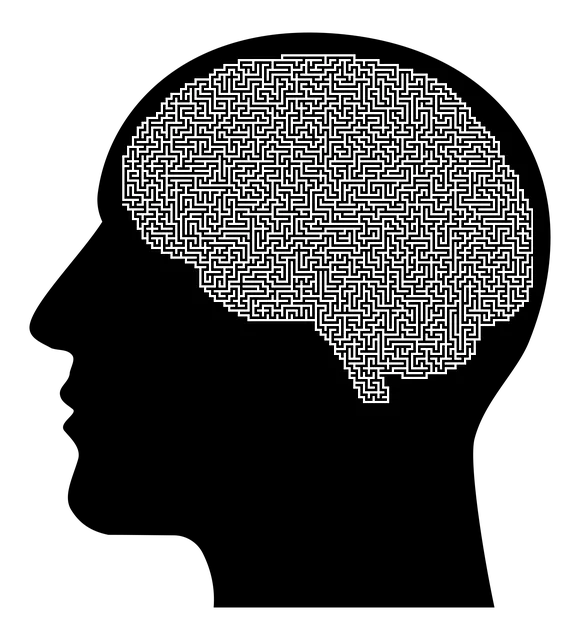Lafayette, in partnership with Kaiser, leads in holistic mental health through Resilience, Flexibility, and Mindfulness (RFM) practices. They emphasize self-care, stress management, and Emotional Intelligence development for both healthcare professionals and patients. RFM techniques, like rest, focus, and movement, empower individuals to build resilience against challenges, enhance well-being, and foster a healthier community. Kaiser's comprehensive mental health services, integrated with Lafayette's initiatives, offer tailored support for effective coping strategies and long-term emotional agility.
“Uncover the power of Resilience, Frequency, and Motivation (RFM) as a game-changer in mental health support. This article explores how Lafayette’s innovative approach, integrated with Kaiser’s well-being programs, leverages RFM to build resilience. We’ll break down key exercises, their benefits, and practical tips for incorporating these into daily life. Discover how Lafayette’s strategies, designed to enhance mental health, can be your tool for navigating life’s challenges, ensuring a more resilient you. Learn if Kaiser’s mental health coverage aligns with these practices.”
- Understanding RFM and its Role in Mental Health
- Lafayette's Approach to Kaiser's Mental Well-being Programs
- Key Components of Resilience Building Exercises
- Incorporating RFM into Daily Routines for Improved Mental Resilience
Understanding RFM and its Role in Mental Health

Understanding RFM—Resilience, Flexibility, and Mindfulness—is crucial in the context of mental health, especially as institutions like Kaiser (or any healthcare provider) navigate complex policies surrounding psychological well-being. In today’s world, where stress and anxiety are prevalent, RFM exercises have emerged as powerful tools to enhance self-care routines for better mental health. Lafayette, a hub for mental health awareness, highlights the significance of these practices in empowering individuals to build resilience against life’s challenges.
The concept aligns with the broader goals of mental health policy analysis and advocacy, focusing on self-esteem improvement and fostering an environment where people can develop effective coping strategies. By integrating mindfulness techniques into daily lives, individuals can navigate life’s uncertainties with enhanced flexibility, ultimately improving their overall mental well-being. Kaiser’s commitment to mental health services, therefore, includes promoting RFM as a holistic approach to care, ensuring patients receive comprehensive support tailored to their needs.
Lafayette's Approach to Kaiser's Mental Well-being Programs

Lafayette’s approach to Kaiser’s mental well-being programs is a holistic one, focusing on both physical and psychological resilience. Recognizing that emotional intelligence (EI) is a cornerstone of mental health, Lafayette incorporates EI development into their curriculum for healthcare professionals. This involves teaching coping skills and risk management planning, empowering individuals to navigate stressful situations effectively.
By integrating these concepts, Kaiser’s programs aim to go beyond surface-level interventions. They seek to equip mental health professionals with the tools needed to enhance their own mental well-being and that of their patients. This comprehensive strategy ensures a sustainable impact, fostering not just short-term resilience but also long-term emotional agility.
Key Components of Resilience Building Exercises

Resilience building exercises are multifaceted strategies designed to equip individuals with the tools to navigate life’s challenges. At their core, these exercises focus on three key components. Firstly, they foster mental flexibility, enabling folks to adapt and view setbacks as opportunities for growth rather than insurmountable obstacles. Secondly, resilience exercises prioritize self-care practices, promoting healthy coping mechanisms and stress management techniques that sustain well-being over time. Lastly, they encourage effective communication strategies, fostering open dialogue about emotions and experiences, which is crucial for building supportive relationships and trauma support services.
In the context of Lafayette and Kaiser’s coverage of mental health, these exercises play a vital role in enhancing resilience among their members. By integrating self-care practices, trauma support services, and effective communication into daily routines, individuals can build a stronger foundation to cope with stress, anxiety, or past traumatic experiences. This proactive approach not only empowers individuals but also creates a network of support within communities, ultimately fostering a healthier and more resilient society.
Incorporating RFM into Daily Routines for Improved Mental Resilience

Incorporating RFM (Rest, Focus, Movement) into daily routines can significantly enhance mental resilience, an aspect that Lafayette’s Kaiser offers through its comprehensive mental health services. This approach to well-being recognizes the interconnectedness of rest, concentration, and physical activity in fostering emotional healing processes. By dedicating time for each component, individuals can navigate life’s challenges with greater equilibrium. For instance, starting a day with focused breathing exercises or meditation (Rest) can set a calm tone, while subsequent mental exercises (Focus) during quiet moments allow for clarity and strategic thinking.
Physical movement, such as a leisurely walk or gentle yoga, rounds out the RFM trifecta by promoting stress management. This holistic approach is further emphasized through community outreach program implementations that educate and encourage peers to integrate these practices into their lives. Moreover, Stress Management Workshops Organization within Lafayette’s Kaiser provides valuable resources for understanding and managing mental health, ensuring individuals have the tools they need to build resilience in their daily routines.
Resilience is a powerful tool in navigating life’s challenges, and Lafayette’s integration of RFM (Resourceful Fronting Method) into their mental well-being programs showcases an innovative approach. By combining this technique with structured resilience-building exercises, individuals can enhance their mental health and overall resilience. Lafayette’s method, backed by scientific research, offers a practical way to incorporate RFM into daily routines, ensuring that folks have the tools to manage stress and adversity. With such comprehensive support, Kaiser’s mental health coverage becomes even more valuable, empowering individuals to take charge of their mental well-being.



